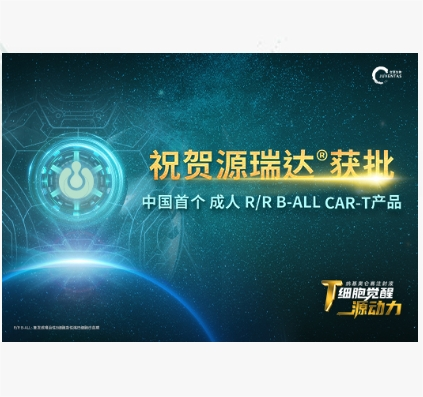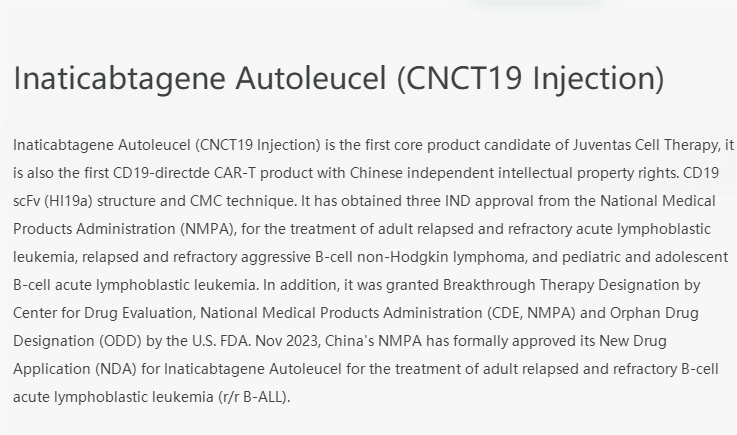Clinical Breakthrough: Chinese CAR-T – Inaticabtagene Autoleucel Revolutionizing Hematologic Cancer Therapy
“Clinical Breakthrough: Chinese CAR-T – Inaticabtagene Autoleucel Revolutionizing Hematologic Cancer Therapy”

On January 5, 2024, the Fourth Chinese Hematology Development Conference was convened in Tianjin, China, concurrently hosting the CAR-T Frontier Forum and the First CAR-T Cell Immunotherapy Summit (JCIS). The focus was directed towards the latest advancements and clinical applications of Inaticabtagene Autoleucel, presenting new pathways for standardized treatments.
Under the moderation of Professors Wu Depei and Hu Yu, Professor Wang Ying from the Institute of Hematology at the Chinese Academy of Medical Sciences presented a specialized lecture titled “Interpreting Key Clinical Data of Inaticabtagene Autoleucel.” Professor Wang highlighted the challenges faced by adult B-ALL patients in China, commonly treated with salvage chemotherapy ± hematopoietic stem cell transplantation. However, the median survival period is only 2-6 months, and targeted therapies yield a median survival of merely 7.7 months, necessitating an urgent need for more effective treatment methods. Recently, the Inaticabtagene Autoleucel infusion has been approved for treating adult R/R B-ALL patients.
Critical clinical research (NCT04684147) has revealed the substantial outcomes achieved with a single treatment of Inaticabtagene Autoleucel:

Rapid and profound remission: Within 3 months of treatment, the overall response rate (ORR) reached an impressive 82.1%, with a 100% negativity rate for minimal residual disease (MRD), showcasing the remarkable effects of Inaticabtagene Autoleucel within a short span.
Enduring remission: The 3-month post-treatment overall remission rate stood at 64.1%, with a 12-month sustained remission rate (DOR) of 80%. With a median follow-up of 8.0 months, the median relapse-free survival (RFS) period has not been reached. The one-year survival rates for overall infused patients, those achieving complete response (CR)/complete response with incomplete hematological recovery (CRi) within 3 months, and those reaching CR/CRi at 3 months were 67.9%, 72.0%, and 85.6%, respectively.
Good safety profile: The incidence rate of ≥3-grade cytokine release syndrome (CRS) was only 10.3%, and that of ≥3-grade immune effector cell-associated neurotoxicity syndrome (ICANS) was merely 7.7%. Moreover, patients recovered post-treatment without complications.
Furthermore, data from over 100 patients validated the clinical efficacy and safety of Inaticabtagene Autoleucel, affirming its robustness and offering renewed hope to a larger patient population. This breakthrough treatment provides a new avenue for tackling challenging diseases and is poised to revolutionize the landscape of hematologic cancer therapy.
#CARTRevolution #InaticabtageneAutoleucel #HematologicCancerTherapy #ClinicalBreakthrough #ChinaHematologyConference #JCIS #BAllTreatment #MedicalAdvancements #CancerResearch #TreatmentInnovation #InaticabtageneAutoleucel #Autoleucel #ChineseCART #CARTTherapy #cancer #Bloodcancer #MedicineinCHINA #Medicaltourismo #Advancedmedicine #cancertherapy
